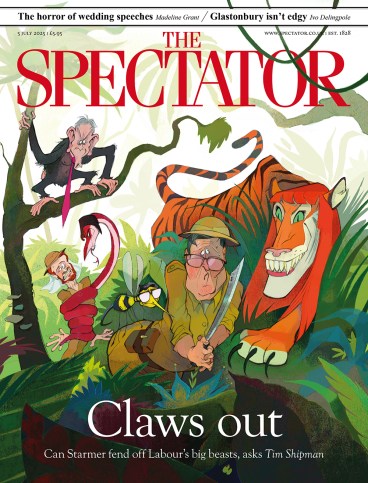
‘What larks!’ exclaimed my husband archly, assuming that a connection between personal independence payments and Pip in Great Expectations would be amusing. But it is true that the political wrangle over personal independence payments would have been harder to popularise without the cheery abbreviation.
Some of us remember Denis Healey’s promise to ‘squeeze property speculators until the pips squeak’. He might also have made similar promises about the rich in general. His inspiration was Sir Eric Campbell Geddes, First Lord of the Admiralty from 1917. ‘We will get everything out of her that you can squeeze out of a lemon,’ he said of Germany in December 1918. ‘I will squeeze her until you can hear the pips squeak.’ The phrase was popularly associated with Lloyd George, who won the election of that month.
Pips and pippins go together. Belloc’s epigram is memorable: ‘I said to Heart, “How goes it?” / Heart replied: “Right as a Ribstone Pippin!” But it lied.’ Pippin, from the late 14th century, at first meant ‘a pip’.
The origin of pippin is not clear. It is said to come from pep, a Romance element meaning ‘small’. I suppose that matches the name of Pepin the Short (Pippin in German), who was from 751 the first Carolingian King of the Franks.
J.R.R. Tolkien, steered by philology in all things, makes one of his hobbits Pippin or Pip. His formal name is given as Peregrin Took. Took would seem to be a diminutive of Thorkettill, meaning ‘Thor’s cauldron’. Peregrin would seem to be the Anglo-Norman peregrin, ‘a wanderer abroad’, related to the peregrine falcon and the pilgrim. Tolkien liked to supply historical equivalents for names in his made-up languages. Pippin’s actual name in the Westron speech of men was Razan, ‘apple’. (Just as Frodo’s name in Westron is Maura, meaning ‘wise by experience’, like the Germanic name element frod-. By contrast his loyal follower Samwise is ‘half wise’.) The recent political fortunes of pips have not been larks at all and their treatment not even half wise.






Comments